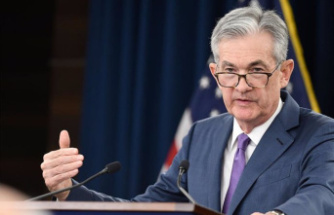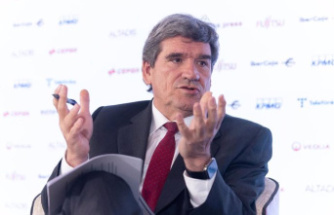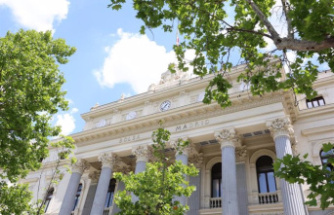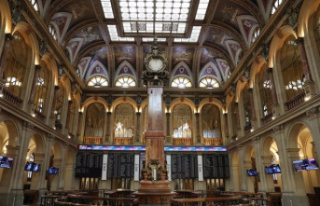Experts suggest that the ECB can take a break in the increases in 2023
MADRID, 26 Oct. (EUROPA PRESS) -
The Governing Council of the European Central Bank (ECB) will decide this Thursday a new rise of 75 basis points in interest rates, according to the consensus of analysts consulted by Europa Press, which would raise the price of money to 2%, the most high since January 2009, and which supports the price of the euro, which recovered parity against the dollar on the eve of the meeting.
If it finally materializes, this new rise in rates in the euro zone would be the third in a row since the ECB began to adjust the rate with a first increase of 50 basis points in July, followed by a rise of 75 basis points in September. , the most aggressive in the history of the institution.
Despite the shift in its monetary policy, the inflation rate in the euro zone stood at 9.9% last September, which marks a new historical record and represents an acceleration of eight tenths compared to that registered in August. Likewise, the core inflation rate in the eurozone, which excludes the effect of energy and fresh food, reached a record 4.8%, five tenths more than in August.
"There is little doubt that the ECB will raise 75 basis points at this Thursday's meeting," says the head of global market strategy at Natixis IM Solutions, Mabrouk Chetouane, for whom, despite the fact that the volatile macroeconomic context justifies the approach "meeting by meeting" of the ECB, the institution will have to clarify its roadmap.
Looking ahead to 2023, the ECB will have to choose between preserving financial stability and fighting inflation in a context of high risk, especially in terms of economic growth.
"We continue to believe that the ECB will have to raise its main refinancing rate to 3% by the end of the year, since a lower level is not credible in the face of current inflationary dynamics," he adds, stressing that the entity would have to temporarily postpone adjusting the size of its balance sheet until at least the first quarter of 2023, once most of the interest rate adjustments are behind us.
Along similar lines, Gilles Moëc, chief economist at Axa Investment Managers, assures that a 75 basis point rate hike at Thursday's meeting "is already discounted by the market" and points out that "the messages from the 'hawks' have been building up over the past few weeks, driving market prices above the 3% level by spring 2023."
In this way, he warns that, faced with the influence of the 'hawks', the ECB has put itself in a "slightly delicate" position by arguing that it is making decisions "meeting by meeting", while in practice it gives strong indications about the next steps.
On the other hand, the Axa Investment Managers economist also considers it likely that the majority of the Governing Council of the ECB will lean this Thursday towards postponing any discussion on the quantitative adjustment.
Likewise, Lale Akoner, Senior Market Strategist at BNY Mellon Investment Management, agrees that the macroeconomic environment puts the ECB in a difficult situation regarding its rate hike cycle, forecasting that the ECB will approve another 75 basis point rate hike tomorrow. .
With this week's hike and another expected in December, the ECB is giving itself room to pause in early 2023, when the long-term effects of the Russian oil and gas crisis will be most apparent.
In this sense, Yves Bonzon, head of investments at the Swiss private bank Julius Baer, considers it likely that 2022 will mark the end of rate hikes. "It is possible that we are past the height of monetary tightening fears," he adds, referring to a slowing economy "that will dampen the enthusiasm of central banks in their tightening efforts."













